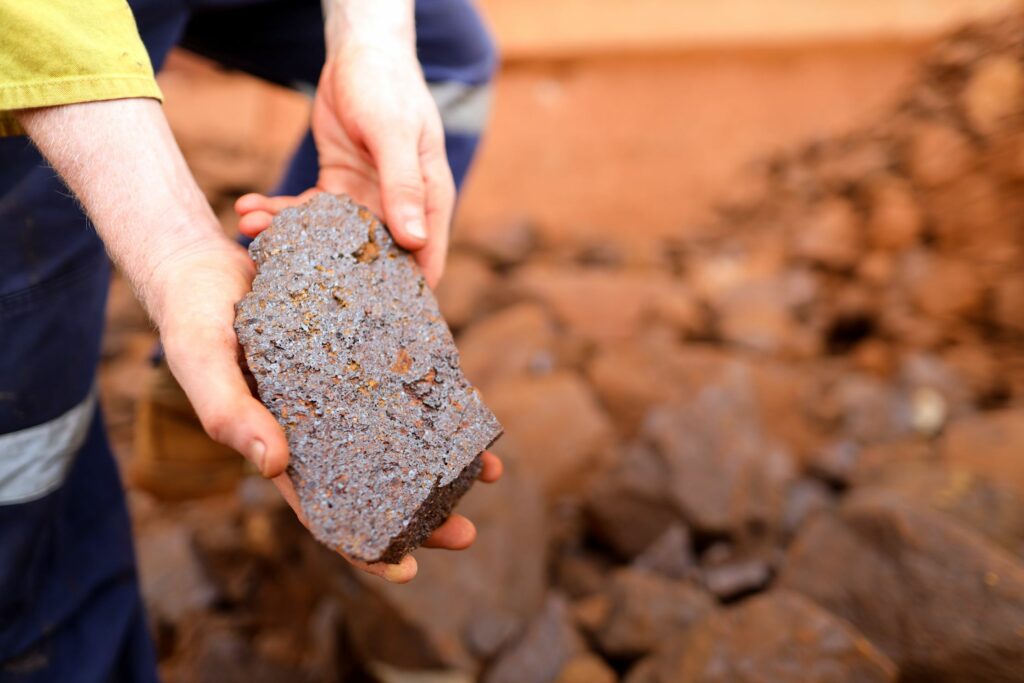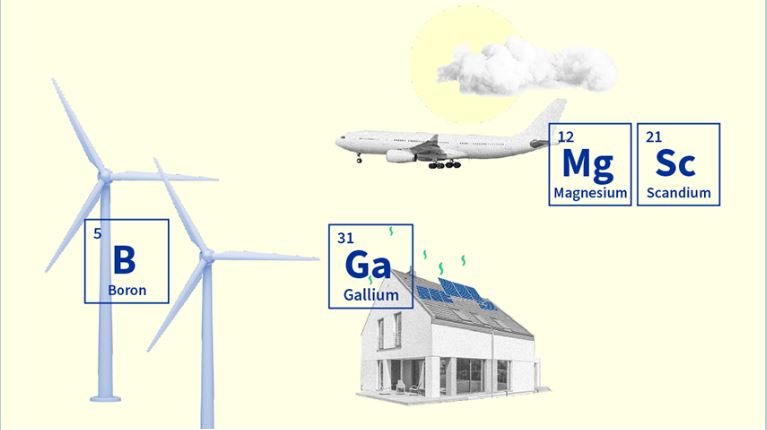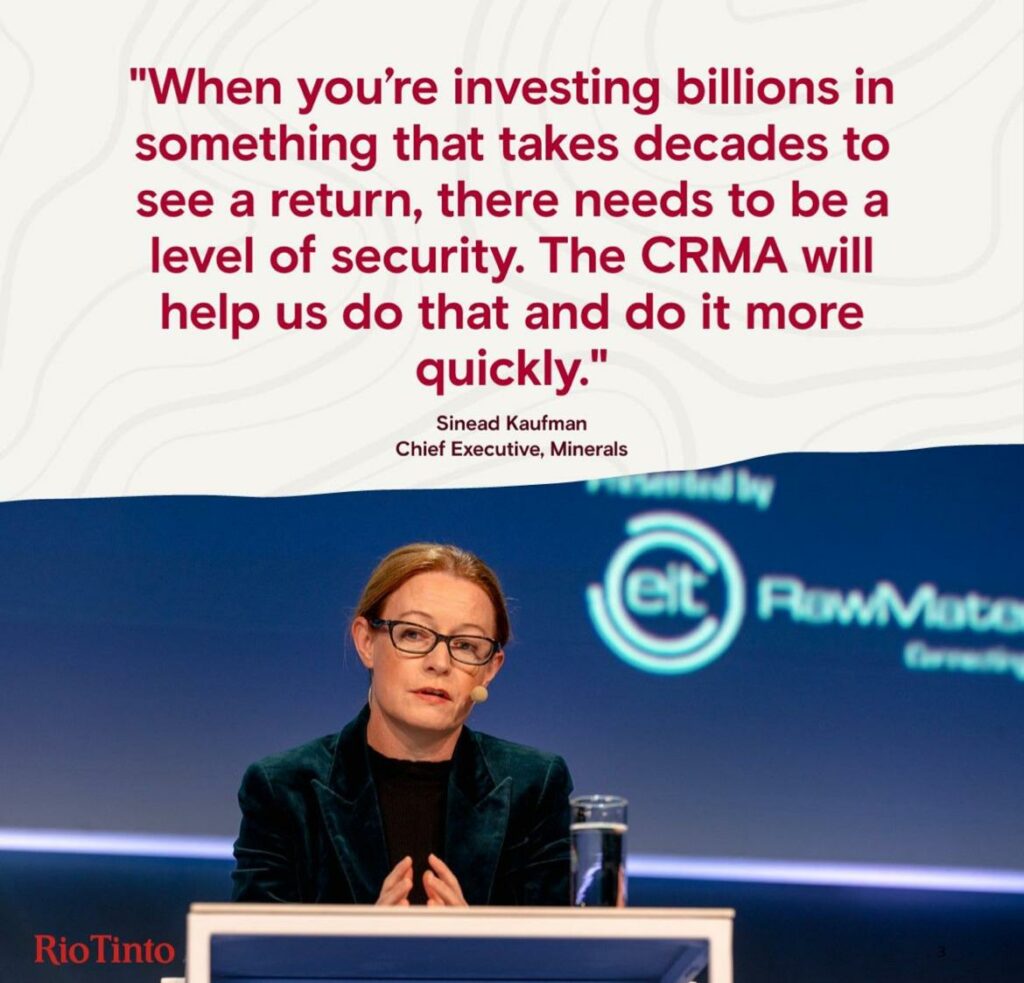23 May, 2024
The CRMA enters into force
23 May 2024 – Today, the Critical Raw Materials Act (CRMA) from the European Union will enter into force. The Act was first mentioned in 2022 so in terms of EU approvals, the process has been surprisingly quick. This shows how urgent the CRMA is for the EU and Europe. This new regulation will be important for the EU, the environment, and for Eurobattery Minerals. So let's celebrate that this EU regulation becomes effective as of today!
What will the CRMA mean for Eurobattery Minerals in real terms?
The Critical Raw Materials Act isn´t just important for the EU, it will also be important for mining companies like Eurobattery Minerals. We have talked about this new Act a lot lately, like in our February and March newsletters. More concretely, this is what we believe the CRMA will mean for our company:
- Streamlined Regulatory Framework: The Act seeks to simplify and accelerate the permitting process for mining projects within the EU. Extraction projects should receive their permits within a maximum period of 27 months. Currently, this process is taking between 10-15 years in many countries. By reducing bureaucratic hurdles and providing clearer guidelines, mining companies can bring projects online faster and more efficiently. This can lead to reduced costs and increased profitability.
- Increased Investment & Funding: The CRMA is likely to stimulate investments in the mining sector. This support can come in the form of grants, subsidies, or favourable loans, particularly for strategic projects that contribute to the EU's autonomy in critical raw materials.
- Market Stability & Demand: By establishing a stable and predictable regulatory environment, the CRMA can ensure a steady demand for critical raw materials. This stability is beneficial for mining companies as it can lead to more predictable revenue streams and long-term contracts, making it easier to plan and invest in new ventures. A strong regulatory framework and government backing can also increase public and investor confidence in the mining sector.
- Responsible mining & Innovation: The Act encourages responsible mining practices and the development of innovative technologies for extracting and processing raw materials. Mining companies that adopt these practices may benefit from additional support and incentives, positioning themselves as leaders in responsible mining and potentially gaining a competitive edge.
- Strategic Partnerships & Collaboration: The CRMA promotes cross-border collaboration between EU member states but also other countries that are rich in critical raw materials. This can lead to strategic partnerships and joint ventures.
In summary, the Critical Raw Materials Act is set to create a more supportive environment for mining companies through increased investment, streamlined regulations, market stability, sustainability incentives, strategic partnerships, enhanced R&D, and boosted public and investor confidence. These factors combined can significantly benefit mining companies like Eurobattery Minerals, which operate within the EU.
Background of the Critical Raw Materials Act
The CRMA is first mentioned in 2022, when the President of the EU Commission, Ursula von der Leyen announced the Critical Raw Materials Act during her State of the Union speech. It´s also based on the Versailles Declaration and The Conference on the Future of Europe. It was a call to address EU dependency on imported critical raw materials by diversifying and securing a domestic and sustainable supply of critical raw materials.
Because just as the European Union realized how dependant the block was on Russian gas and other fossil fuels in the spring of 2022, they also realized that Europe is equally dependant on important metals and minerals.
The Chinese monopoly on critical and strategical minerals
With the pandemic and the various geopolitical crisis, Europe realized how vulnerable it´s when it comes to critical raw materials (CRMs). Because even though we Europeans consume around 25-30 per cent of the total amount of metals in the world. But Europe is importing more than 75% of what it requires which creates a huge dependency on other states.
Lithium and cobalt are vital for electrical vehicles. Lithium is mainly mined in Australia and Chile. The Democratic Republic of Congo produces over 70% of the world´s cobalt. 51% of all the nickel in the world comes from Indonesia and the Philippines. In terms of Rare Earth Elements (REE), China produces 66%.
But the problem is not just the mining. Because even if the minerals are mined in Australia, Chile, or Indonesia, most of them go to China for refining, processing, and manufacturing. Because not only do we not have mines in Europe, we have very little industry downstream too. This means that China controls the world of CRMs; the country virtually has a monopoly.

The goals of CRMA
The main goal of CRMA is to secure the supply of Critical Raw Materials in Europe. They are vital for Europe's economy and a wide set of necessary technologies for strategic sectors, such as renewable energy, digital, space and defence. But they are highly susceptible to supply disruptions and risk becoming a trade weapon in the geopolitical game.

The global demand for these materials is skyrocketing, driven by the Green Transition. The EU has very ambitious commitments to decarbonize its economy with Agenda 2030 and the Fit for 55 Package. The EU's demand for rare earth metals is expected to increase six-fold by 2030 and seven-fold by 2050. The demand for metals as copper, nickel, cobalt, and tungsten will also explode during the upcoming years. Above all, we will need a lot of copper because this metal used for wind power, electrical vehicles, solar power, data centres for AI… Copper is everywhere!
As we have seen above, currently Europe heavily relies on imports, often from a single country, highlighting strategic dependencies during recent crises. Without coordinated and timely action to ensure a resilient and competitive single market, European industries and the EU's climate and digital goals are at risk.
The urgent need for minerals from Europe for Europe
As we can see, it´s becoming increasingly crucial for EU countries to secure a stable supply of the critical and strategic minerals needed for new renewable energy sources. Without metals, there is no green transition, we will not be able to move away from the fossil fuels. And without mining, there are no metals. We can recycle, but to be able to recycle, we need the raw materials in the first place. We need responsibly mined minerals from Europe, for Europe, just like we say in Eurobattery Minerals´ vision.
CRMA will hopefully bring investments and create a level of security
The CRMA identifies two lists of materials (34 critical and 17 strategic) that are important for the green and digital transitions, as well as for the European industries, for example, the defence sector. The CRMA establishes three benchmarks for the EU’s annual consumption of raw materials: 10% from local extraction; 40% to be processed in the EU and 25% to come from recycled materials.
Like we mentioned above, the permitting process will be capped at 27 months, a lot shorter than today. Important news for us at Eurobattery Minerals!

The European Commission has also announced an open call for Strategic Projects under the CRMA. This initiative aims to contribute to the EU's objectives for CRMs. On the 13th of May, Eurobattery Minerals announced that the Company will apply for the battery mineral project Hautalampi to become such a strategic project. The recognition of a project as a Strategic Project has several advantages, including streamlined and predictable permitting procedures and support in gaining access to finance.
All in all, we hope that the CRMA will create a new level of stability for the mining industry, and also bring investments into exploration and extraction.

 Svenska
Svenska
 Deutsch
Deutsch